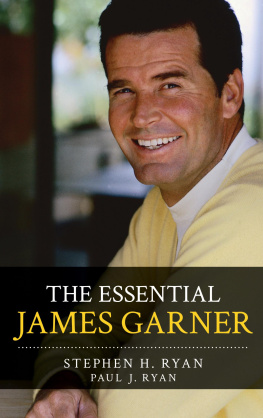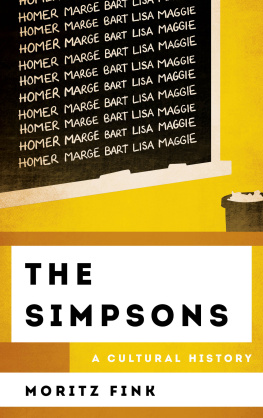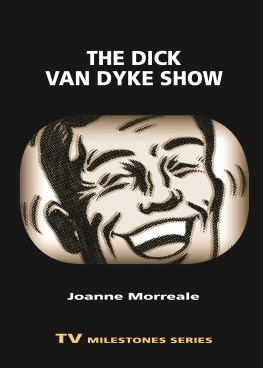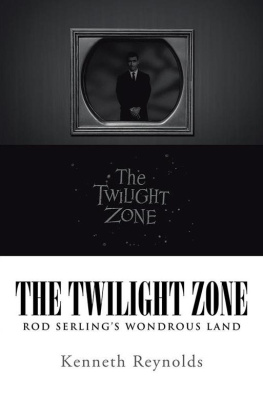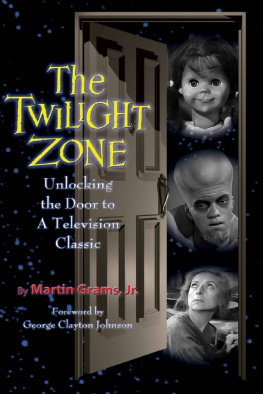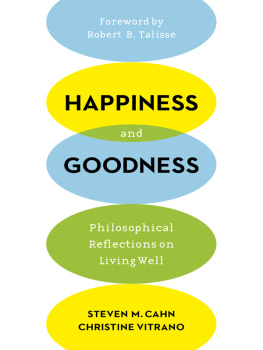Walking Distance
Remembering Classic Episodes from Classic Television
Victor L. Cahn
Walking Distance
Remembering Classic Episodes from Classic Television
Copyright 2014 Victor L. Cahn. All rights reserved. Except for brief quotations in critical publications or reviews, no part of this book may be reproduced in any manner without prior written permission from the publisher. Write: Permissions, Wipf and Stock Publishers, W. th Ave., Suite , Eugene, OR 97401 .
Resource Publications
An Imprint of Wipf and Stock Publishers
W. th Ave., Suite
Eugene, OR 97401
www.wipfandstock.com
isbn : 978-1-62564-794-8
eisbn : 978-1-63087-352-3
Manufactured in the U.S.A.
To
my brother, Dr. Steven M. Cahn,
and
my sister-in-law, Marilyn Ross (Cahn), M.D.
Introduction
E very generation has its own cultural heritage. For tens of millions who came of age during the 1950 s and s, and who will forever bear the title Baby Boomers, the bedrock of that heritage is television.
This phenomenon began at the mid-point of the twentieth century, and combined the immediacy of radio with the endurance of film. Like radio, television offered daily and weekly programs that were broadcast into our homes, where we could enjoy them either in solitude or amidst our families. Like movies, television provided pictures that made such experiences indelible.
How much impact do these shows retain?
One measure is the number from that era which today are presented as frequently as ever. Indeed, on stations like ION Television, TV Land, and MeTV, reruns from forty, fifty, and sixty years ago are the staple of their fare, while many other cable networks profitably fill their hours with these same shows.
Even more telling, however, are the countless images and sounds that remain touchstones for those who watched and listened decades ago.
A few notes of the opening theme to Perry Mason are all boomers need to conjure up memories of Raymond Burr as the dauntless attorney along with the shows other regulars: Barbara Hale as secretary Della Street, William Hopper as detective Paul Drake, William Talman as DA Hamilton Burger, and Ray Collins as Lieutenant Tragg (whose first name, for trivia buffs, happened to be Arthur).
The phrase a three-hour tour heralds the ballad of Gilligans Island, with Bob Denver as the hapless mate, Alan Hale, Jr. as the Skipper, Jim Backus and Natalie Schaeffer as Mr. and Mrs. Howell, and the rest of the marooned passengers. No doubt the discussion will quickly turn to the ever-raging question as to which female castaway was more desirable: Ginger or Mary Ann?
Lucy, you got some serious splainin to do. The speaker could only be Desi Arnaz as Ricky Ricardo on I Love Lucy , demanding the truth from his madcap wife played by real-life spouse Lucille Ball .
I could cite many more.
But such early programs remain beloved not just because they evoke what may seem a more innocent time. In fact, children and young adults enjoy them as much as their parents and grandparents still do.
The more important reason is that these shows were superbly crafted. The writers, directors, producers, and actors who worked under the strictures of that day were compelled to use their ingenuity, and the best of their creations remain terrific comedies and dramas that will please audiences in perpetuity.
Too often, though, the shows are dismissed as mere entertainment unworthy of serious study. Even to some loyal viewers, a line-by-line dissection of a script from The Honeymooners or The Fugitive may seem incongruous. But one aim of this book is to confirm that like quality movies, novels, and plays, these programs merit detailed analysis. Moreover, such a process teaches not only how great art is constructed, but also how it may impact our lives.
In the following essays, I probe with what I like to think is singular depth into individual episodes from eleven shows. I dont claim that these are the absolute best from that era, although some surely are. The ones considered here, however, mattered most to me. The opening chapter is devoted to Walking Distance from The Twilight Zone, and each of the next five sections considers two shows that are in some way related and therefore deserve to be explored in tandem. I hope that all together they represent a proper selection of style and spirit.
I also hope that my retrospective will inspire readers, even those who know these programs well, to revisit them and enjoy them even more.
Prologue
I was born in 1948 . During the same year, the familys first television came into our home, and soon the set and I became a team.
Ever since I was old enough to walk and carry a tray bearing food, I have relished retreating alone into a room and peacefully eating while I watch television. Fortunately my family indulged my predilection, so during the s and s I enjoyed more than my share of private viewing. Of the many shows I liked, some actually shaped how I looked at the world, and in this book I explain why.
The first programs I watched regularly were... and Im not kidding... soap operas. My pre-kindergarten classes ended at : PM, at which time I was driven home by bus. If I was among the first to be dropped off, I could see Love of Life at :. If I arrived a little later, I started with Search for Tomorrow at :. And if I was among the last to be deposited, I had to be satisfied with only one show: The Guiding Light at :.
I knew the names of all the characters and actors. I followed the complex plots, and I worried about the outcomes.
I was four.
The first primetime show that earned my regular attention was The Adventures of Superman , starring George Reeves as the Man of Steel (although I never referred to him as such). I bought the illusion of his flying, and I enjoyed the last-minute rescues, but certain details bothered me. First, almost every time Superman prepared for action, his alter ego, Clark Kent, would dash into the same store room at the Daily Planet building to change into his costume. Why, I wondered, did no one notice this quirk? Second, I could never understand why when crooks shot bullets at Superman, he stood tall, arms akimbo, and invited the assault, but after his foes exhausted their ammunition and threw their guns, he ducked. Wouldnt the empty weapons have just bounced off him? Most of all, Clark and Superman looked so much alike. Couldnt anyone make the connection?
I also observed that two women played Lois Lane: first Phyllis Coates, then Noel Neill. Both were attractive and capable, but Coates was tougher, and did not hesitate to belittle Clark when he failed to meet her standards for male behavior. Frankly, she scared me. Jack Larsen as young Jimmy Olsen and John Hamilton as Editor Perry White were both likeable, although I sensed that Mr. Whites grouchy exterior masked affection for his reporters. In some episodes Olsen and White were almost buddies, but in others Jimmys antics pushed Mr. White to the end of his tether. I could never see any consistency to their relationship.
My favorite part of each show was the closing, when Clark or Superman would either comment on how everyone had been fooled, or offer a point of wisdom that we should ponder. At the end of one episode, for instance, someone asked Superman how he knew that Jimmy had been in danger. Oh, I was just flying by, he answered, with a knowing wink to the camera (and me). In another, Clark resurfaced just after Superman had flown away, and Lois became suspicious. I wonder, she mused. No wonder, replied Clark. Youre a pretty wonderful girl.


